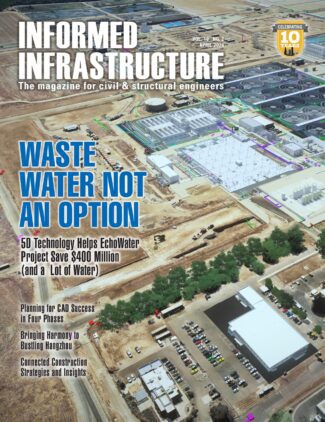Bethesda, Md., March 4, 2013”The results of the 2013 election have been tallied by the American Society for Photogrammetry and Remote Sensing (ASPRS) Tellers Committee and they reported that Lynn Usery, U.S. Geological Survey, won the election to become ASPRS Vice President for 2013. With the installation of officers at the ASPRS Annual Conference in March, Stephen D. DeGloria moves into the position of President; Stewart Walker becomes President-Elect, and Roberta (Bobbi) Lenczowski becomes Past President. Pierre le Roux was elected Assistant Director of the Primary Data Acquisition Division (PDAD).
E. Lynn Usery is a Research Physical Scientist and Director of the Center of Excellence for Geospatial Information Science (CEGIS) with the U.S. Geological Survey (USGS). He worked as a cartographer and geographer for the USGS (1977-1988) researching and developing automated cartographic and geographic information systems. He was a professor of geography at the University of Wisconsin-Madison and the University of Georgia, where he taught and conducted research in remote sensing, cartography, and geographic information systems (GIS) and led the establishment of undergraduate and graduate certificates in GIS. He returned to the USGS in 1999 and established a program of cartographic and geographic information science (GIScience) research that evolved into CEGIS. Usery also currently teaches remote sensing at the Missouri University of Science and Technology.
Usery has been active in societal governance and management chairing a Working Group for the International Society for Photogrammetry and Remote Sensing (1992-1996). He was Chair of the Research Committee (1999-2002), Board member (2003), and officer (2003-2005) including President in 2004 of the University Consortium for Geographic Information Science (UCGIS). He was President of the Cartography and Geographic Information Society (CaGIS) in 2002 and served as editor of the journal Cartography and Geographic Information Science, 2003-2006.
Currently the Chair of the U.S. National Committee to the International Cartographic Association, Usery also chairs the Local Organizing Committee and is the Conference Director for the 2017 International Cartographic Conference which will be held in Washington, D.C. He is a Fellow of CaGIS and the American Congress on Surveying and Mapping, and was elected to the first class of Fellows of UCGIS. He received the CaGIS Distinguished Career Award in 2012. Usery has been a member of ASPRS since January 1, 1978.
Usery received his BS in geography from the University of Alabama and MA and PhD degrees in geography from the University of Georgia. His current interests and research are in theoretical GIScience including geospatial ontologies and semantics, map projections, multidimensional data models for lidar, and high performance computing for spatial data.
As Vice President of ASPRS, Usery says, I will work to maintain ASPRS leadership and simultaneously reach out to other organizations to support the ASPRS mission to promote the ethical application of sensors and the disciplines of photogrammetry, remote sensing, geographic information systems, and other supporting geospatial technologies. I will support the advancement of the understanding of the geospatial and related sciences and expand public awareness of the profession. I will support the diverse programs and people necessary to promote a balanced representation of the interests of government, academia, and private enterprise. I will promote programs to engage students and young scholars who are the future of ASPRS and the geospatial sciences. The multifarious applications of geospatial technologies affect almost every aspect of our society and I will work as an officer in ASPRS to further the societal goals of multiple and diverse representation.
Pierre le Roux, the newly elected Assistant Director of the Primary Data Acquisition Division, has gained hands-on experience with applied photogrammetry and remote sensing across a wide application spectrum in both developing and developed economies. Most recently he supported the Deepwater Horizon Spill response as lead Integrated Intelligence, Surveillance, Remote Sensing (ISR)/Geospatial Intelligence (GEOINT) Management Advisor, by providing consulting and leadership on the selection, acquisition, coordination, and deployment of appropriate surveillance, GIS and remote sensing technologies, as well as the ISR tasking, collection, production, exploitation and dissemination (TCPED) activities during the Deepwater Horizon Spill Response. He was also the Liaison to the U.S. Federal Government Entities (eg., U.S. Coast Guard, NGA, NOAA,USAF) and International Remote Sensing Community with respect to Integrated Intelligence, Aerial Surveillance and Remote Sensing activities during and after the Response.
Le Roux says, I will work together with the PDAD Director and the ASPRS community to apply the recent valuable and practical lessons learned from the multi-modal remote sensing and surveillance operations during one of the largest and longest duration peace time remote sensing and surveillance missions to reinvigorate and promote ASPRS as a thought leader in pragmatic future looking remote-sensing and surveillance solutions in support of geospatial intelligence applications for the traditional, and rapidly growing non-traditional application areas.
Founded in 1934, ASPRS is an international professional organization of 6,000 geospatial data professionals. ASPRS is devoted to advancing knowledge and improving understanding of the mapping sciences to promote responsible application of photogrammetry, remote sensing, geographic information systems and supporting technologies.

